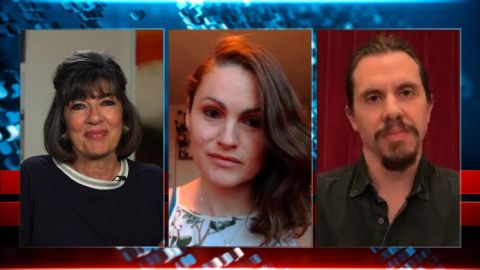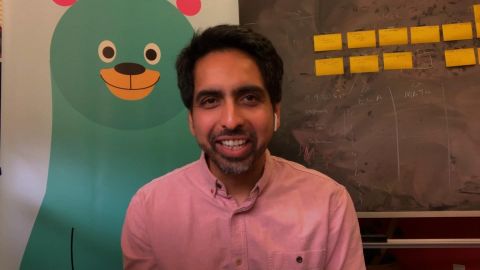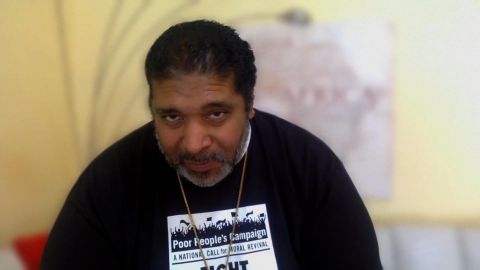Read Transcript EXPAND
CHRISTIANE AMANPOUR: What was it like for you to step out of your medical role and take on that now very, very public performance?
FIONNUALA DONOVAN, NEURO-PHYSIOTHERAPIST, NHS: Hello. Thank you. It was, to be honest, just trying to look at it of how we can try and help people more, because we appreciate people are being quite afraid and a bit anxious and lonely at home. So, I wasn’t so much thinking from that point of view, but more thinking, how can this help others? And we have got a great, supportive team. So it was good fun as well.
AMANPOUR: And, Fionnuala, how does it help you? Because you guys are all under such stress right now. I mean, if anything, this story is about the front-line medical workers. And you’re still in the hospitals. You have got your own wards and patients that you’re dealing with. How does the music help you to de-stress, if it does?
DONOVAN: I think, well, music has always been something that I think helps a lot of us to de-stress. And I think being part of the Trust Choir, thanks to Breathe Arts Health Research, it’s been something that we have been able to do where we can feel connected, it helps us to laugh, to switch off and just to really relax, while still being part of a big NHS family.
AMANPOUR: Let me ask you Mike King, because you are the musical production wizard who put it all together. How does one do that? I mean, you think that, oh, all of a sudden, all these people suddenly can get the tech and get the songs and get the musician — the instruments and do it, but clearly not. They need a Mike King. What’s the sort of production?
MIKE KING, MUSICAL DIRECTOR, BREATHE HARMONY NHS CHOIR: Well, it’s been nice. The quality of what you hear, I think, really is quite fantastic. And the reality is, is that this song was recorded on mobile phones, both (INAUDIBLE) where we had people recording their parts and joining us for virtual choir rehearsals, if they wanted to run over the parts with us. So, we had people from all over the world connecting together on these rehearsals, and then they would then record their parts on their phone and send them in. And we would just put more together, and then create the song you hear now.
About This Episode EXPAND
Rev. William J. Barber stresses the importance of protecting the poor in the midst of the COVID-19 pandemic. Congresswoman Katie Porter tells Michel Martin how she’s holding the CDC accountable. Sal Khan discusses Khan Academy’s resources for kids, parents and teachers. Representatives from Britain’s National Health Service explain how music can shed light in these dark times.
LEARN MORE



